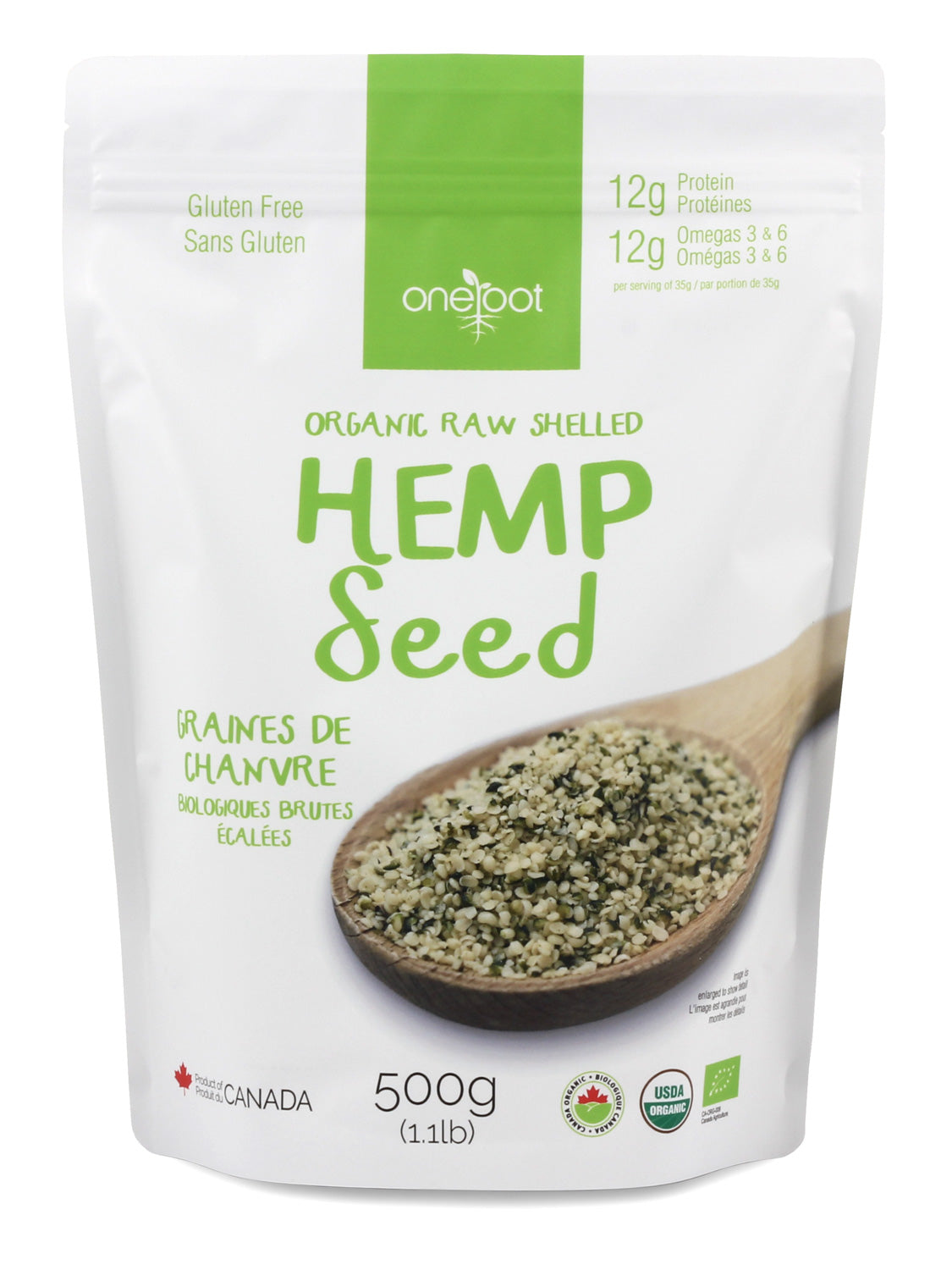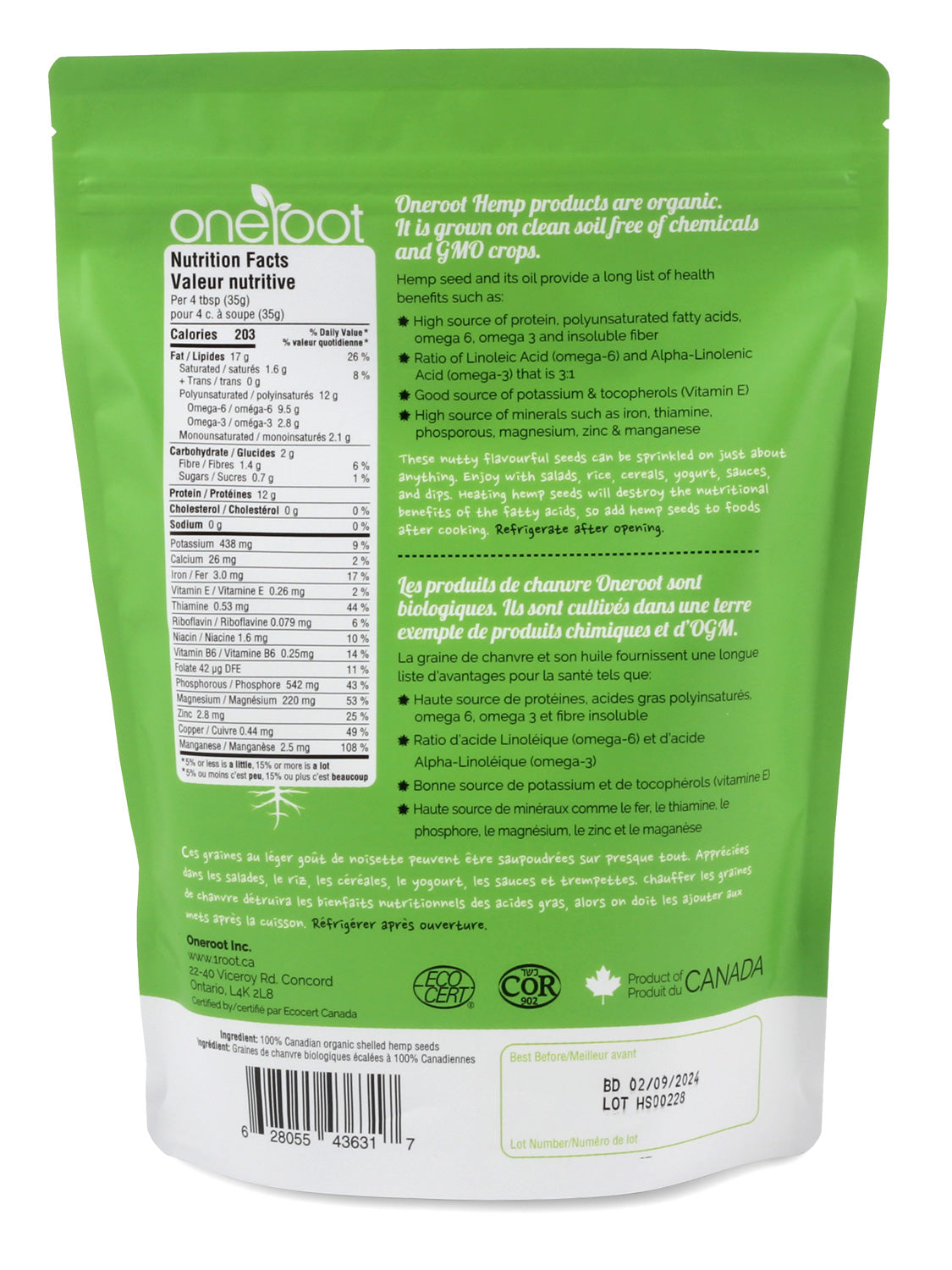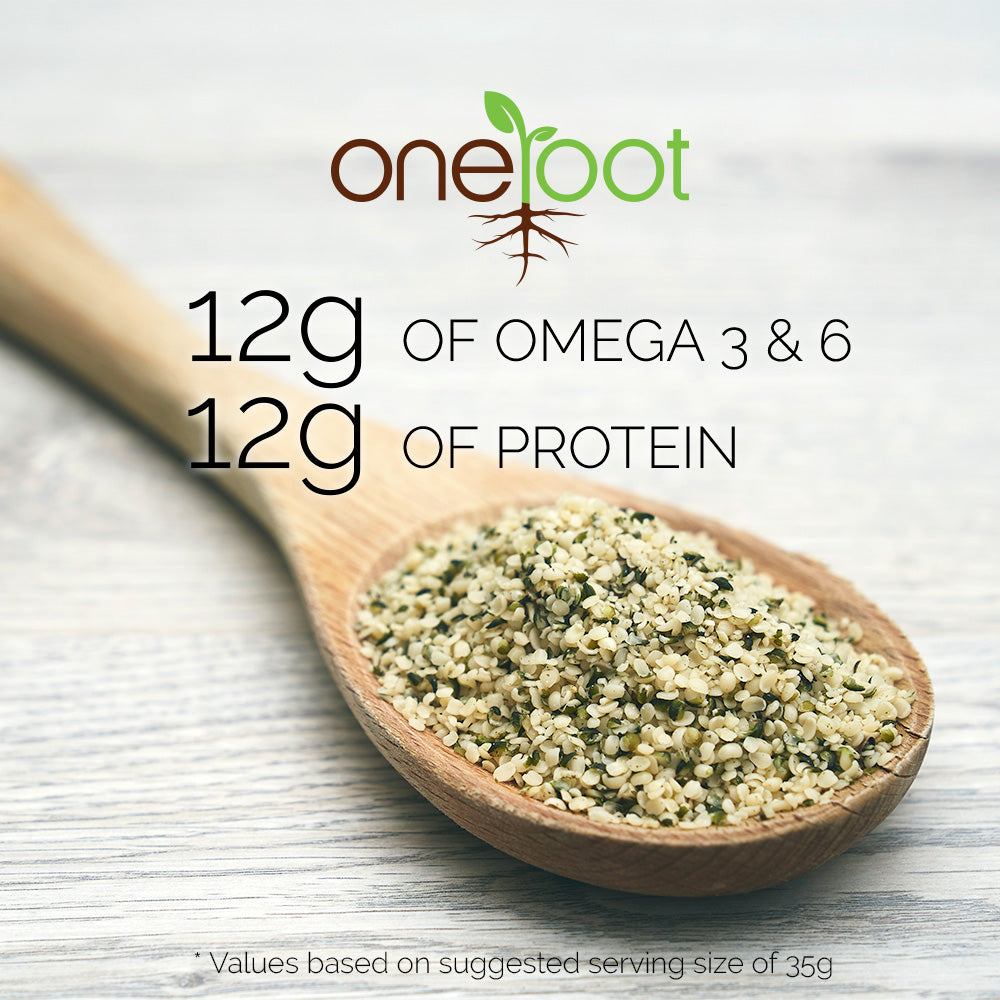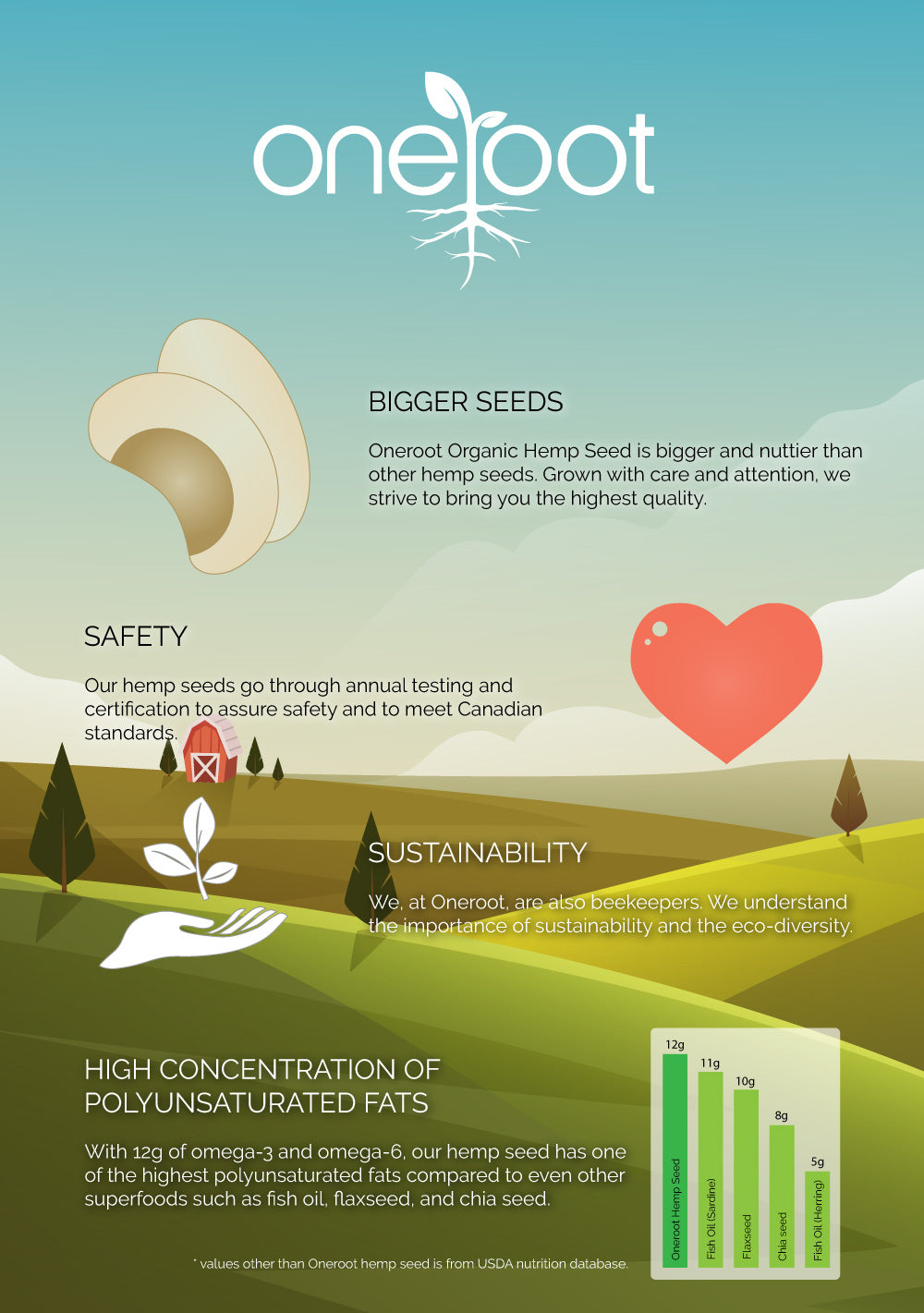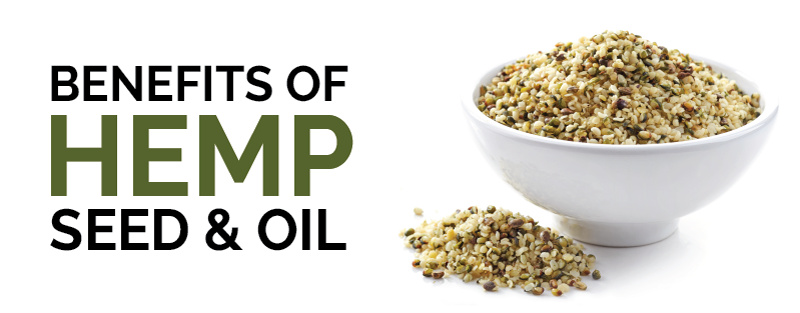
![]()
Hemp seeds are rich in protein, having 12g per 4 teaspoons (35g). That is much higher than that of beef (9.08g), chicken (6.10g), or almonds (7.40g).
Values other than hemp seeds from National Nutrient Database for Standard Reference 1 Release April 2018, USDA
There are relatively few plant-based foods that provide a complete source of protein, making it valuable for any vegetarian or vegan diet.
![]()
The benefits of omega-3 fatty acids are well known. Hemp seeds are a great source of multiple essential fatty acids like linoleic acid (omega-6) and alpha-linolenic acid (omega-3) in an ideal ratio of 3:1. As the body is unable to produce these acids, they must be absorbed through the diet, such as hemp seeds.
![]()
Vitamin E is a group of fat-soluble vitamins with antioxidant effects. Vitamin E helps to prevent inflammation, prevent coronary heart disease, support immune function, support eye health, and lower the risk of cancer.
Vitamin E is also great for the skin when applied directly, which is why we've developed our own face mask, H2 Honey Face Mask with Hemp Oil
![]()
Hemp seeds contain a large variety of minerals. It is especially rich in magnesium, zinc, phosphorus, iron, and potassium; providing essential nutrients to your diet.
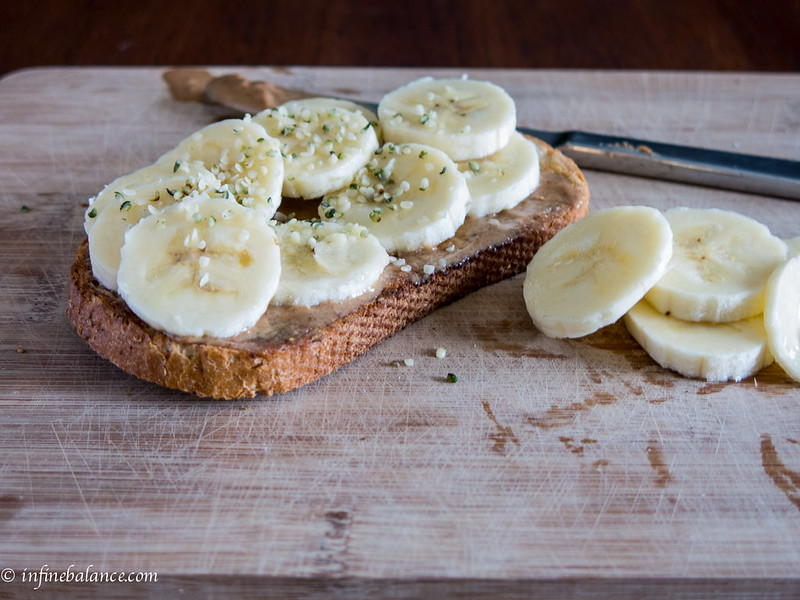
How to Eat
Hemp seeds are great when sprinkled on to cereals, salads, yogurts, and more. Just toss a spoonful on them.
You can blend them to create hemp seed milk just like you'd make almond milk.
Hemp seeds have a nutty flavor, so for those with nut allergies, hemp seeds make a great substitute for your favorite recipes.
You can dry-toast them on low heat to bring out the nutty flavor even more.
Storing Hemp Seeds
Before opening, you can store them at room temperature.
Once opened: If you store it in a refrigerator, the shelf life will be about a year. If you store it in a pantry, it will last 3 to 4 months. You can also store it in a freezer to extend its life even further.


